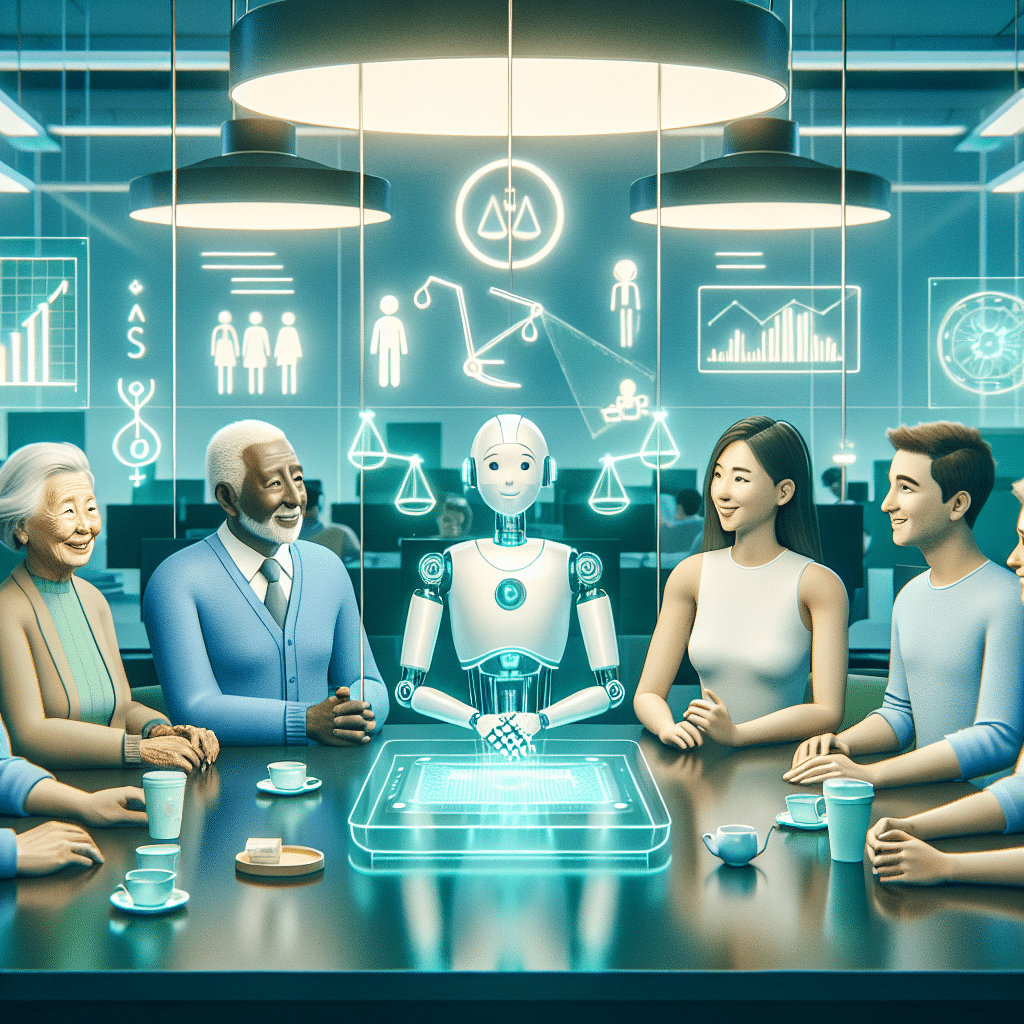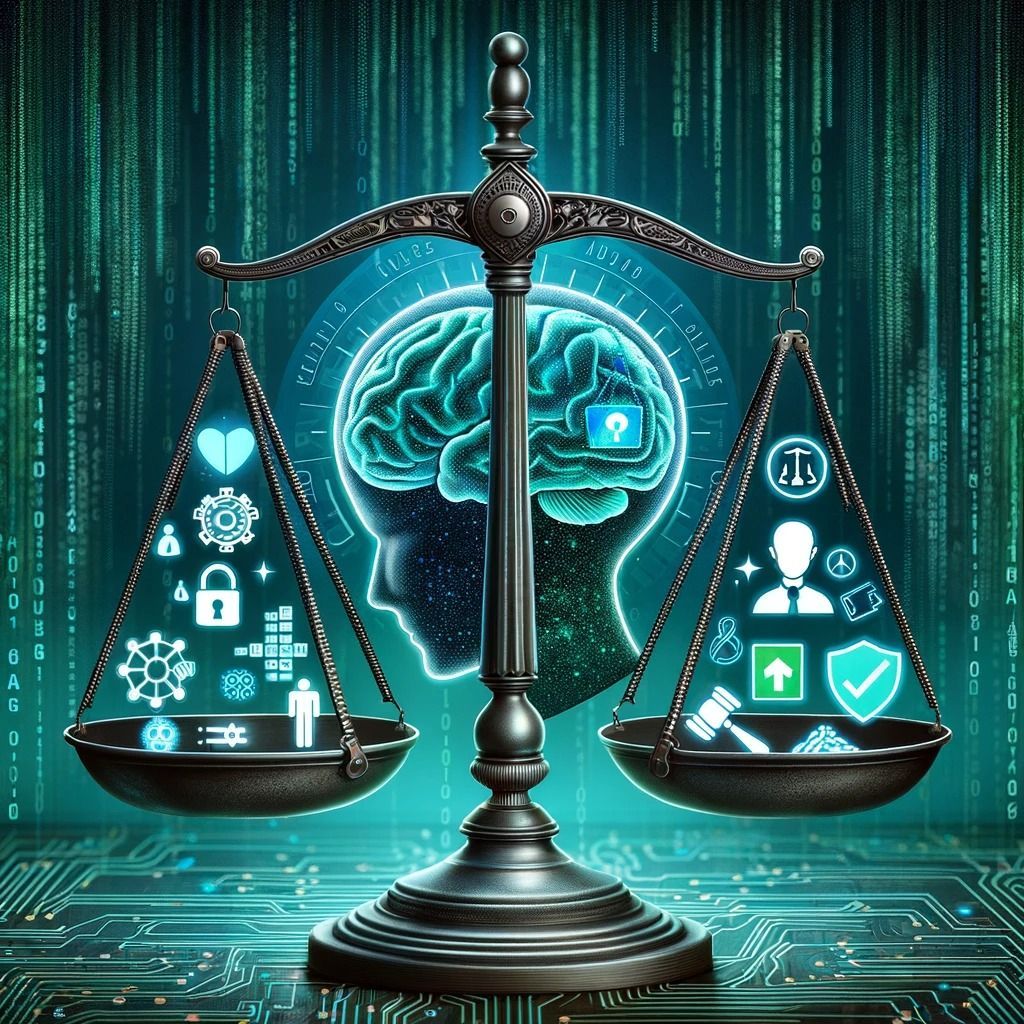The Ethics of Automation

Navigating the Moral Maze of Technology
Automation is no longer a futuristic concept; it is an undeniable reality woven into the fabric of our daily lives. From the algorithms that recommend our next movie to the robots assembling our cars, autonomous systems are transforming industries and societies at an unprecedented pace. Yet, as we embrace this new era of efficiency and convenience, we are forced to confront a complex and often unsettling question: What are the moral boundaries of this technology? The ethics of automation is a field that seeks to navigate this intricate moral maze, exploring the profound implications for jobs, justice, privacy, and the very nature of human responsibility.
The conversation around automation is often dominated by its economic impact, but the ethical dimensions are far more nuanced and critical. As machines take on roles once reserved for humans, we must define the rules of engagement. Who is responsible when an autonomous vehicle causes an accident? How do we ensure that AI algorithms are free from bias? And what is the long-term impact on a society where human labor becomes less essential? These are not hypothetical questions; they are the challenges of today, and they demand a thoughtful, collaborative, and urgent response.
The Pillars of Automation Ethics
The ethical landscape of automation can be broken down into several key areas that require careful consideration from technologists, policymakers, and the public.
A. The Ethical Dilemma of Job Displacement
Perhaps the most immediate and widely debated ethical issue is the impact of automation on the workforce. As robots and AI systems become more capable, they are increasingly able to perform tasks once done by human workers.
- The Problem of Transition: While automation can create new, high-skilled jobs, it often leads to the displacement of workers in traditional industries. The ethical challenge lies in managing this transition. How do we retrain a displaced workforce? Who is responsible for providing a safety net for those who are left behind?
- The “Useless Class” Concern: Historian Yuval Noah Harari has popularized the concept of a “useless class” of individuals who may become economically irrelevant as automation advances. The moral question this raises is fundamental: In a world where labor is no longer a primary source of value, how do we structure society to ensure all citizens can live a life of purpose and dignity?
- Ethical Solutions: Potential solutions include universal basic income (UBI), which provides a safety net for all citizens; investing in robust educational and retraining programs; and implementing policies that encourage a more equitable distribution of the wealth generated by automation.
B. Bias, Fairness, and Algorithmic Justice
AI and machine learning systems are only as good as the data they are trained on. When that data reflects historical biases, the algorithms can perpetuate and even amplify those biases, leading to unjust and discriminatory outcomes.
- Bias in Training Data: If an AI used to screen job applicants is trained on data from a company with a historically male-dominated workforce, it may learn to favor male candidates, regardless of their qualifications. This can perpetuate gender inequality.
- The Black Box Problem: Many advanced AI systems are “black boxes,” meaning their decision-making processes are not transparent. This makes it incredibly difficult to identify and correct biases. The ethical imperative is to develop transparent, explainable AI systems.
- Algorithmic Accountability: When an algorithm makes a biased decision that harms an individual, who is to blame? The programmer? The company that deployed the system? The ethical challenge is to establish a clear framework for accountability and redress.
C. Responsibility, Liability, and the Autonomous System
The rise of autonomous systems, from self-driving cars to automated medical devices, raises complex questions about responsibility and liability. When a machine makes a mistake, who is held accountable?
- The Human-in-the-Loop Problem: In many systems, a human is still ultimately responsible for the machine’s actions. But what happens when the human is not paying attention or is given an impossible task?
- Liability in Accidents: When a self-driving car gets into an accident, is the responsibility on the car’s manufacturer, the software developer, the owner of the vehicle, or the passenger? This legal and ethical gray area requires clear policy and legal frameworks.
- Moral Agency in Machines: Can an AI ever have moral agency? This is a philosophical question that will become more urgent as AI systems become more complex and autonomous. While a machine cannot feel empathy or guilt, can it be designed to make ethical decisions?
D. Privacy, Surveillance, and Data Ownership
Automation is powered by data, and the collection of this data often comes at the expense of our privacy. As smart technologies are integrated into every aspect of our lives, the line between convenience and surveillance blurs.
- Data Collection and Consent: We often consent to data collection without fully understanding how that data will be used. The ethical challenge is to ensure that data collection is transparent and that users have genuine control over their own information.
- Predictive Policing and Surveillance: AI is being used in predictive policing to identify potential criminal hotspots. However, if this technology is based on biased data, it can lead to an over-surveillance of minority communities.
- The Right to Be Forgotten: In an automated world where data lives forever, the right to have one’s personal information erased becomes increasingly important. The ethical framework must ensure that individuals have the ability to control their digital footprint.
The Path Forward: A Call for Ethical Design
The ethical challenges of automation are not insurmountable. The path forward requires a multi-pronged approach that involves technologists, policymakers, educators, and the public.
- Ethical by Design: The most effective approach is to embed ethical considerations into the very beginning of the design process. This means that technologists must be trained in ethics and that ethical considerations are given the same priority as functionality and profitability.
- Clear Regulation and Policy: Governments must work to create clear regulations that address liability, privacy, and data ownership. This will provide a stable framework for innovation while protecting the public interest.
- Public Education and Dialogue: A well-informed public is essential for navigating the ethical maze of automation. We must encourage open dialogue and education about the benefits and risks of these technologies.
The ethics of automation is not an abstract debate for philosophers and academics; it is a practical and urgent concern that will shape the future of our society. By addressing these challenges head-on, we can harness the power of automation to create a world that is not only more efficient and convenient, but also more just, equitable, and humane.

